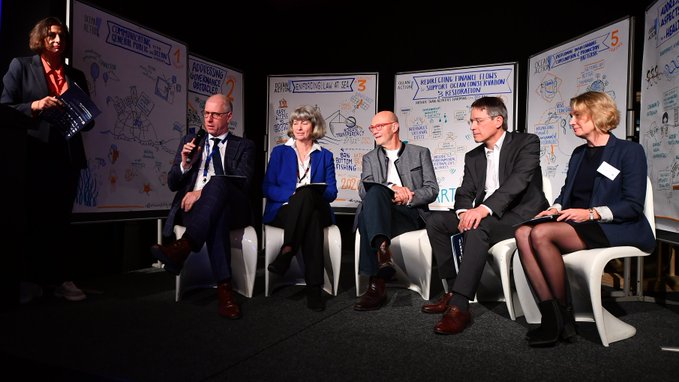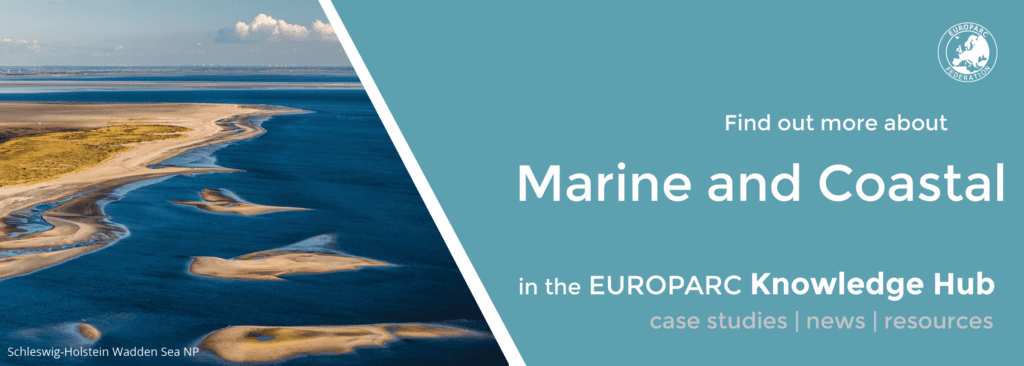Ocean Action! Conference in Brussels
Last February 5th, Ocean Action! brought together policy-makers, scientists, activists and artists from all over the world. Together, they called the EU for action on its commitment to protect and restore our seas and ocean and the cost of inaction was discussed.
“If the Martians were to land on the planet today, they would not call it Earth, but Ocean.” So began the Oceans conference in Brussels named #OceanAction, organised by Seas At Risk with the support of other Environmental NGOs and framed within an Ocean Week 2020 full of events dedicated to highlight the importance of the oceans in the life of the planet earth, its ecosystems, and the enormous challenge they face with the climate emergency affecting each and every one of the marine living beings and therefore, the rest of the world population.
The event consisted of a day where inspiration and emotional connection were the drivers of a collective reflection about the need to act NOW to save the future of the oceans.
The cornerstone of the event was the Blue Manifesto, an initiative presented by the Blue NGOs in Europe together with around 100 civil society organisations, which aims to act as a roadmap for a healthy ocean in 2030. Described as a rescue plan for the next ten years, it sets out a series of measures to reverse the situation of degraded oceans and coasts. Some of the important points are the measures to ensure:
- that EU seas are in good environmental status
- that EU freshwater is in good status
- the design and protection of all Natura 2000 sites from Harmful activities under the Birds and Habitats Directives
- that EU countries end overfishing under the Common Fisheries Policy
- the end of illegal, unreported and unregulated fishing
- the implementation of the Deep-Sea Regulation
We need thriving marine and coastal ecosystems to support a climate-resilient future
The event
Participants came from all over the world. From scientists and high-level decision-makers to young activists, Blue NGOs, sportsmen/women, artists and even the production team of the BBC documentary Blue Planet II.
Through presentations, interactive debates and workshops the main challenges in the future of the environmental management of the marine environment were discussed, the problems, possible solutions and necessary measures to reach them before the situation becomes irreversible for the planet and all the species that inhabit it, were also raised.
I can assure you that the name of Oceans in my portfolio is not a question of image, but the confirmation of a political will (Virginijus Sinkevičius, Commissioner for Environment, Oceans and Fisheries)
In addition, around the main presentations, there were different art exhibitions, from photography to art installations using elements collected in the sea, like plastics. Together with music and virtual reality spaces, all these inspiring elements allowed the visitor to enjoy a multisensorial experience of the oceans, human activities and the problems they both face.

@SeasAtRisk
Call to action: Why now?
The ocean is in crisis and the situation requires effective Ocean Action
The call to action by Monica Verbeek, Executive Director of Seas At Risk, left no one indifferent. To ensure that marine areas constitute ”safe havens for animals and plants to have a break from harmful human activities and where coastal communities can enjoy a preserved nature”, it is necessary to establish a vision towards 2030, where Marine Protected Areas will play an important role in ensuring this objective, working to form an ecologically coherent and continuous network to allow species to travel from one to another and have long-term budgets, monitoring and management plans. Some of the important points to consider would be:
- By 2030, at least 30% of the ocean will be highly or fully protected
- By 2030, we will have a clean, pollution-free ocean
- By 2030, we will have shifted to low impact fishing
- In the whole ocean, the planning of human activities will support the restoration of thriving marine ecosystems
The next 10 years will determine our ability to adapt and together with sufficient political support, bring the necessary change to achieve the restoration of marine life, an end to overexploitation, destructive practices and pollution.

